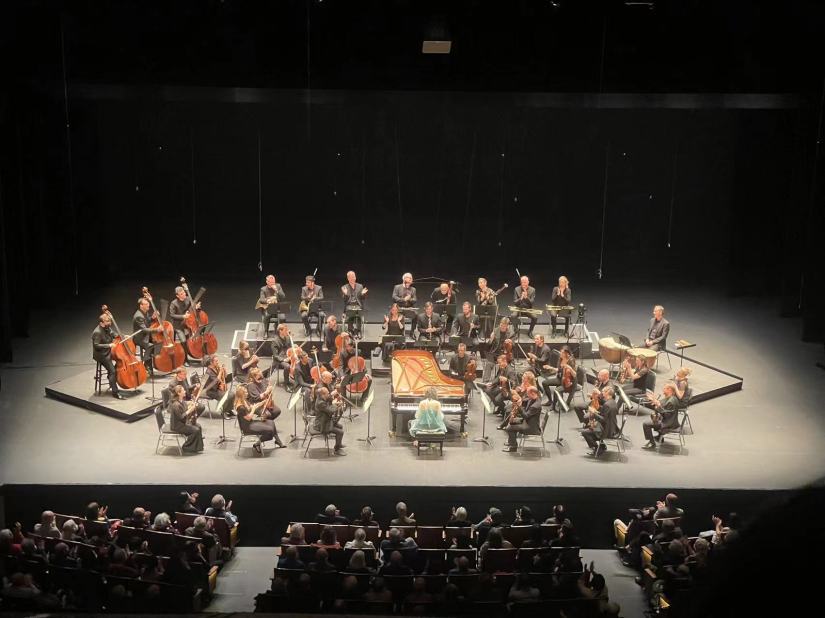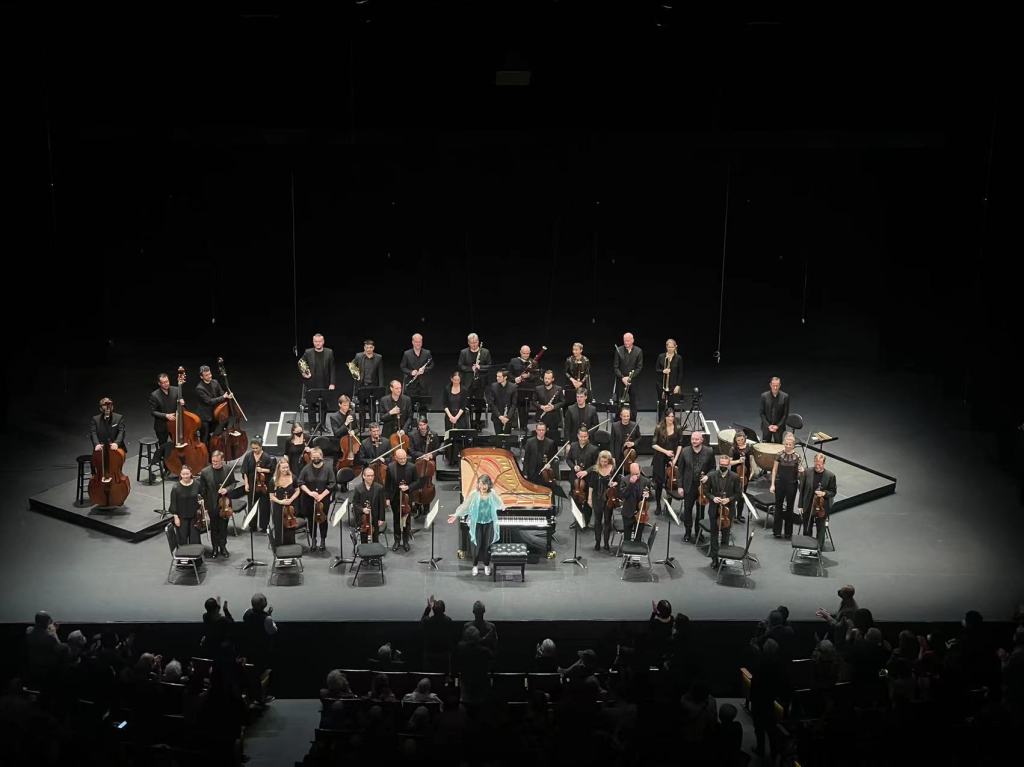Berkeley’s Zellerbach Hall lit up with the glow of two Mozart concertos, as Maestro Uchida seamlessly mastered the dual role of soloist/conductor. From the piano bench, with her back to the audience bathed in sea blue radiance, her baton-less hands wove expressive lines that soared in the air, before they gracefully descended on the keys. These motions alternated gracefully as the music unfolded. With her well-framed singing pulse and contoured phrases providing a gratifying give-and-take between forces of orchestra and soloist, the pianist earned a well deserved standing ovation.
Uchida is a poet of the piano, in the good company of Murray Perahia who has a similar operatic approach to an instrument that can easily become percussive by its hammer-driven action. Uchida, in particular, by her performance of Piano Concerto No. 23 in A Major, K. 488, and No. 24 in C minor, K. 491 (late and well-developed works) rose above the instrument and its infinite inner mechanical workings–inviting her audience into a universe of arias, interspersed with rising and falling, nuanced, scale-like passagework, while her phrases had an organic beauty embedded with tasteful rubato. Where more thunderous runs took center stage, with tympanic reinforcement in the more symphonic sections of the C minor work, Uchida easily slipped into mood shifts with enviable finesse.

Most memorable for me, was Uchida’s heart-throbbing playing of the middle movement Adagio, Concerto No. 23 that has a heaven sent partner companion in the composer’s Clarinet Concerto in A Major, K. 622. Both in the same key, are ethereal expressions of Mozart’s profoundest emotions.
The only drawback for me in an otherwise immaculate reading of two monumental concertos was the size of the orchestra that tended to overpower the pianist during forte passagework sections. It could have been an acoustical issue tied to the hall itself, or attributed to a well projected force of strings (4 cellos, three Basses, 4 violas, and 15 first and second violins combined, that engulfed the piano by its placement).
Uchida, nonetheless treated the piano as an ever-singing instrument and has over decades, waxed poetic about her sacred relationship to music that includes an embrace of Meditation, Oneness, Mindfulness, and a bristling philosophy of life that springs from her love of the arts in its many forms.

One of my favorite Uchida interview snatches on you tube, addresses the question: “Is Talent Enough?” In a second video, the pianist explores the meaning and value of music.
I must conclude with an abounding Thank You to a student who bestowed this concert ticket, enriching my understanding of Mozart and his genius–while inspiring musical growth in the realm of learning and teaching.
from Arioso7's Blog (Shirley Kirsten)
https://arioso7.wordpress.com/2022/03/28/mitsuko-uchida-and-mozart/
No comments:
Post a Comment